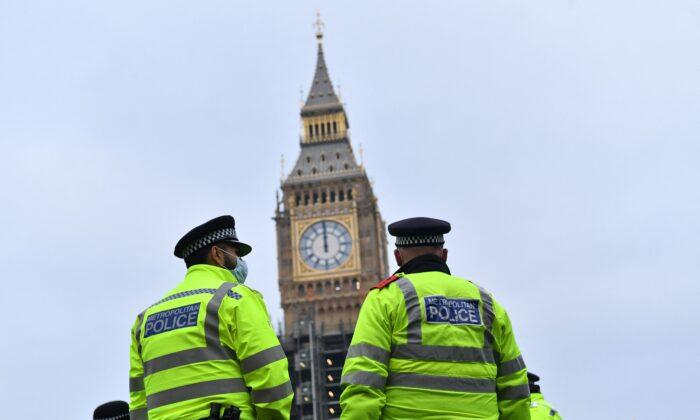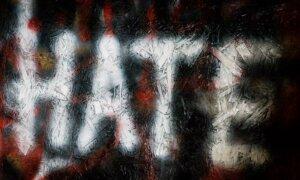A British Free Speech Act modelled on the US’s First Amendment will “abolish political censorship,” according to a conservative think tank.
The free market think tank, Adam Smith Institute (ASI), has called upon Prime Minister Rishi Sunak to consider a “UK Free Speech Act”” to implement UK-wide protection for freedom of speech in light of The Hate Crime and Public Order (Scotland) Act, which came into force on Monday.
Hate Crime Law
The controversial Scottish new hate crime law, which has been described as “dangerous” by free speech activists and MSPs, creates a new crime of “stirring up of hatred offences” for protected characteristics including “age, disability, religion, sexual orientation, and transgender identity.”Scottish Police have also set up designated “Hate Crime Third Party Reporting Centres,” which include housing associations, victim support offices, voluntary groups, and private businesses such as fish farms, caravan parks, and even a sex shop in Glasgow.
‘Deeply Offensive to Freedom of Expression’
The First Amendment guarantees free speech for all Americans : “Congress shall make no law respecting an establishment of religion, or prohibiting the free exercise thereof; or abridging the freedom of speech, or of the press; or the right of the people peaceably to assemble, and to petition the government for a redress of grievances.”“The censorship provisions of the Hate Crime and Public Order (Scotland) Act 2021 (the ”Hate Crime Act“), entering into force this week, are deeply offensive to freedom of expression, and the only way to stop them is to implicitly repeal these new rules with UK-wide protection for freedom of speech,” wrote Mr. Byrne.
He also noted the application of UK law—especially in the last 25 years—such as Public Order Act 1986, the Malicious Communications Act 1988, and Section 127 of the Communications Act 2003, is that their application, especially in the past 25 years, has been “subjective, unpredictable, inconsistent, politically-motivated, sometimes capricious, and thoroughly chilling to speech.”
The Malicious Communications Act criminalises criminalising expression which is “grossly offensive.” And section 4 of the Public Order Act 1986 makes it an offence for a person to use “threatening, abusive or insulting words or behaviours that causes, or is likely to cause, another person harassment, alarm or distress.”
Turbocharges
Mr. Byrne said, however, that the Scottish hate crime law turbocharges all of these problems by “abandoning viewpoint-neutrality” and “expressly targeting “culture war” issues around questions of identity.”This, he said, is “particularly the case when we look at the “aggravation of offences by prejudice” law, which states that age, disability, national or ethnic origin, sexual orientation, and transgender identity are all to be considered when sentencing people in Scotland for criminal offences.”
He noted that transgender activists have sought to have Harry Potter author J.K. Rowling arrested there after English prosecutors declined to prosecute her for prior “gender critical” remarks and that The Hate Crime Act now requires Scottish judges to take into account her “motivations when judging her speech.”
He said that it “makes no sense to criminalise these conversations.”
“Indeed it makes sense to expressly legalise them, given that national politics seems, increasingly, to cluster around identity issues and, in a democratic society, require their open discussion in order for these disputes around the proper ordering of society to be satisfactorily resolved,” he added.
The Epoch Times contacted the Cabinet Office for comment.







